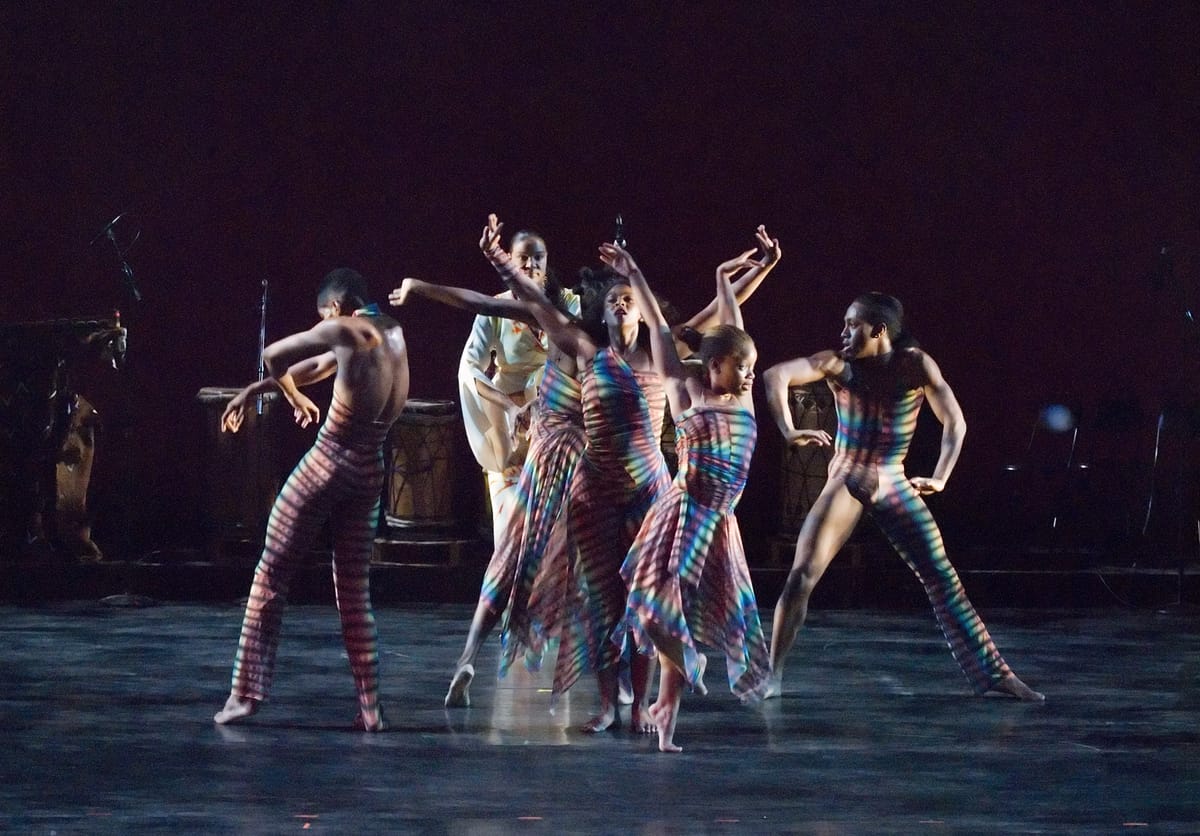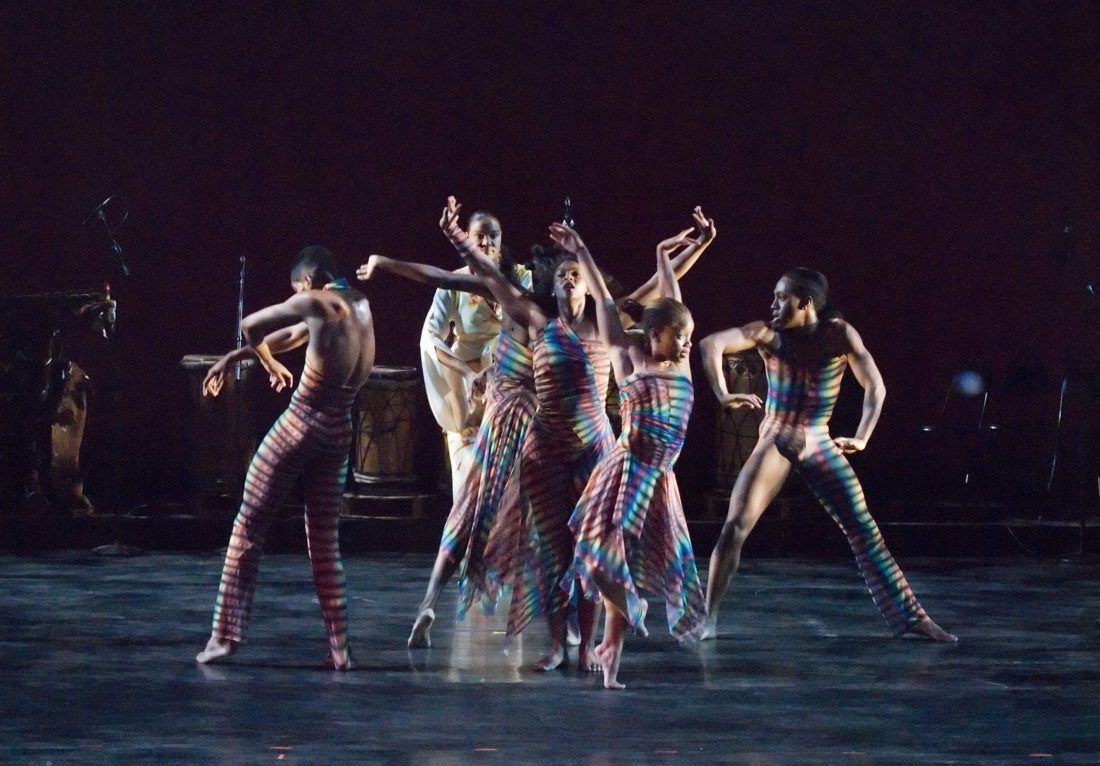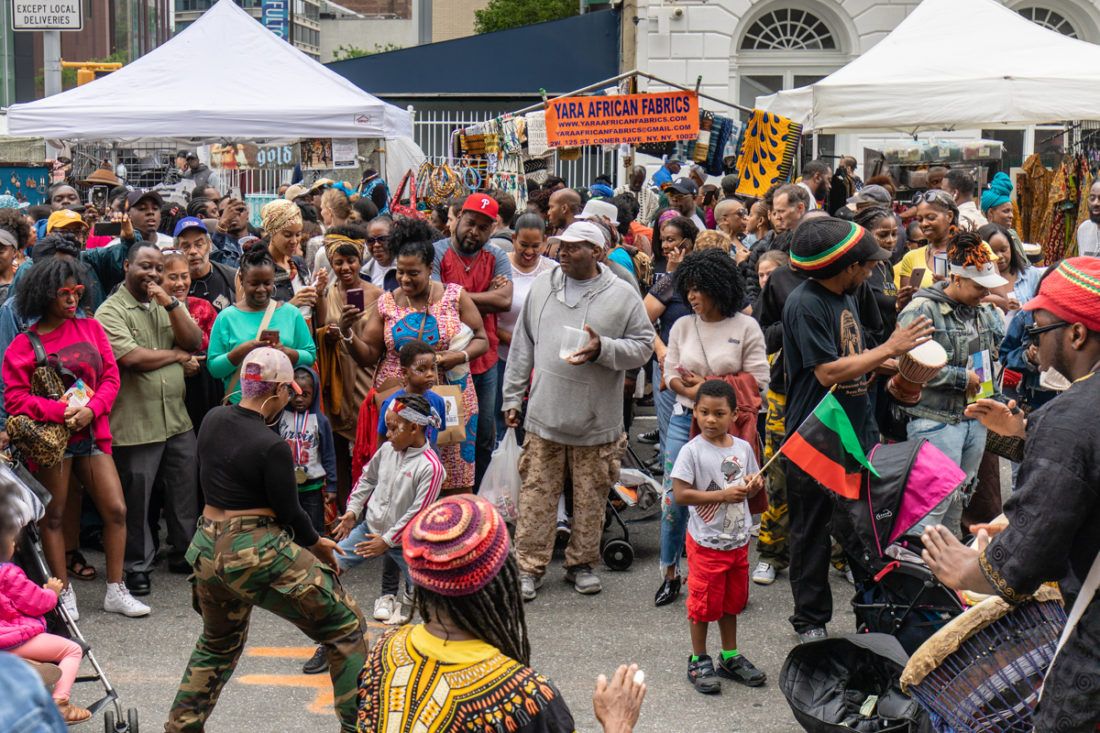DanceAfrica is Back For Its 43rd Year – And It’s All Virtual


BAM’s beloved DanceAfrica – a typically weekend-long festival celebrating dance traditions from Africa and the African diaspora – is back for its 43rd year. Instead of cancelling programming due to the ongoing crisis, BAM’s DanceAfrica team has chosen to extend the festival over two weeks, from May 15th to May 29th, and to substitute the typical live performances, classes, and late-night dance party with a full roster of virtual experiences, complete with an online version of the yearly Bazaar, film screenings, and streamed tapings of past year’s performances.
The country’s largest festival of African dance, DanceAfrica features African, African American, and diasporic artists and dance companies, often focusing on the dance traditions of a different African country. Last year’s festival celebrated Rwanda in remembrance of the 25th anniversary of the Rwandan genocide against the Tutsi; the year before, the lens was on South Africa.
This year DanceAfrica won’t focus on a particular place or theme, but rather on the festival’s history and legacy – its founding in 1977 by former Artistic Director Baba Chuck Davis, who passed away in 2017, up through the present day.
At 11am on Monday, viewers can tune in to watch the original DanceAfrica producer Mikki Shepard — more recently, the Executive Producer of Harlem’s famed Apollo Theater — in discussion with Associate Producer Charmaine Warren about the festival’s inaugural year, and how it’s grown. Mamma Lynette White-Mathews and Baba Bill (William) Mathews, leaders of DanceAfrica’s “Council of Elders, a “community of local artists, leaders, and activists who help keep the traditions and integrity of the program moving forward, through their artistry and wisdom,” the 2020 DanceAfrica press release stated, will chat with Arts Consultant Stefanie Hughley on May 27th.
New this year is a focus on the behind-the-scenes operations of DanceAfrica, which attendees aren’t usually privy to. Viewers can tune in to a discussion with longtime DanceAfrica stage managers Mamma Normadien and Baba N’goma Woolbright, who were married on the DanceAfrica stage in 1983. Joined by current Artistic Director Abdel R. Salaam and Associate Producer Charmaine Warren, they’ll reflect on their marriage ceremony and their years spent working for the festival.
Consistent also with the theme of “behind-the-scenes” was a discussion, streamed last night, between celebrated choreographers Rennie Harris of Rennie Harris Puremovement, Jamel Gaines of Creative Outlet, and Ronald K. Brown of Evidence Dance Company – some of the biggest names in contemporary dance, and black dance in particular, BAM Vice President of Education and Community Engagement, Coco Killingsworth said.
DanceAfrica is also partnering with African Film Festival, Inc. to present a series of modern African classic films, which attendees can pay a small fee to watch on the BAM website. Proceeds support African Film Festival, Inc. and BAM. Attendees also have their pick of two virtual dance classes: the Bantaba Hip Hop Dance Class with James Colter, a founding company member of Renee Harris Puremovement; and the Bantaba West African Dance Class, taught by dancer and choreographer Karen Thronton Daniels and BAM teaching artist Farai Malianga. Both classes are currently full, but interested participants can join the waitlist. The festival will also feature its annual dance party, held virtually on Monday, May 25th and featuring a set by DJ YB.
Perhaps most difficult to recreate is the much-anticipated Bazaar, which typically features a sprawling outdoor marketplace with hundreds of independent Caribbean, African, and African-American vendors and restaurants selling food, clothing and other goods in the area around BAM. This year, however, the bazaar is also going virtual, so DanceAfrica attendees can still give their support to over twenty different small business owners. The Virtual Bazaar page provides links to each of the vendors and restaurants, and will remain live through June 14th.

While there’s no way to fully replicate the experience of watching a live dance performance or attending an open-air bazaar, the DanceAfrica team wanted to try and keep the festival’s spirit alive, Killingsworth said. “When the realization came that we weren’t going to be able to hold this event in person, there was a real sadness — but also a resilience that it didn’t mean that Dance Africa was going away forever.”
Since they announced that this year’s festival would be virtual, Killingsworth has seen an outpouring of support from the DanceAfrica community, and a sense of relief that it was, despite all odds, still coming back. Signup for the dance classes, for example, were filled to capacity within minutes. “Everybody who’s part of the dance Africa community waits for this time each year to connect with each other,” Killingsworth said.
These are the people DanceAfrica serves, and the reason they’ve worked so hard to bring the program back this year. “We – as DanceAfrica, as African peoples, as BAM – we can continue to innovate,” Killingsworth said. “And that’s what we’re doing.”




